News
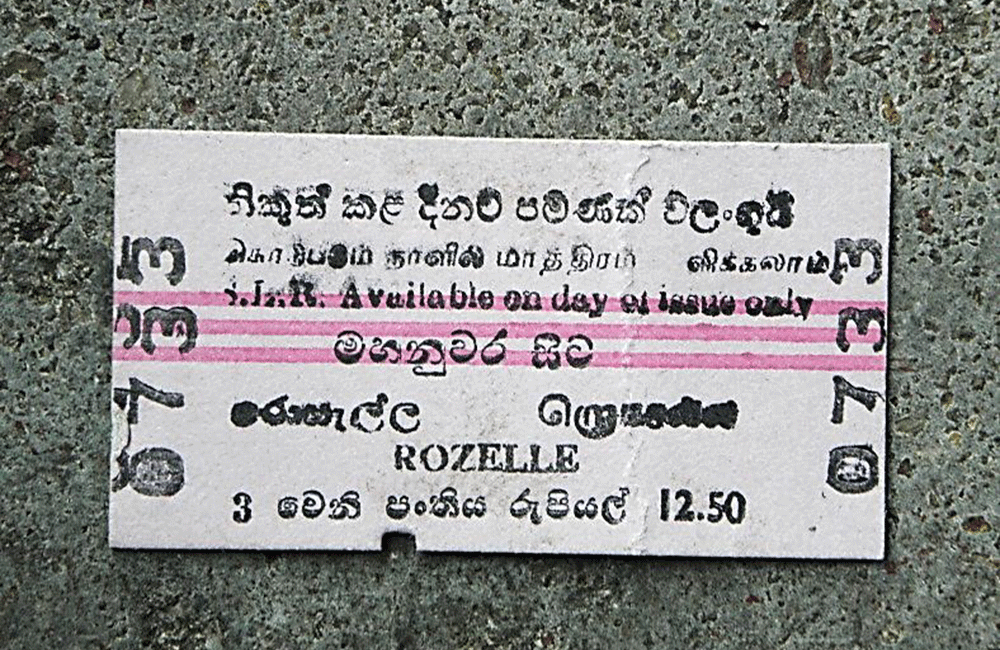
New train fares effective from today!
The new train fares, revised under the Budget Proposal for the 2018, are effective from today (01) onwards.
Sri Lanka Railways stated that, according to the new fare revision train fares will go up by 15%.
However, the minimum fare will remain unchanged, further stated Sri Lanka Railways.
Sri Lanka Railways says that this new fare revision is the first fare revision for train services in nearly a decade.
Accordingly, the previous minimum fee of Rs 10 for the third class, Rs 20 for the Second Class and the Rs 40 First Class, will remain unchanged.
Although season ticket fares also changes under the fare revision, the fare percentage will not change. (Derana)
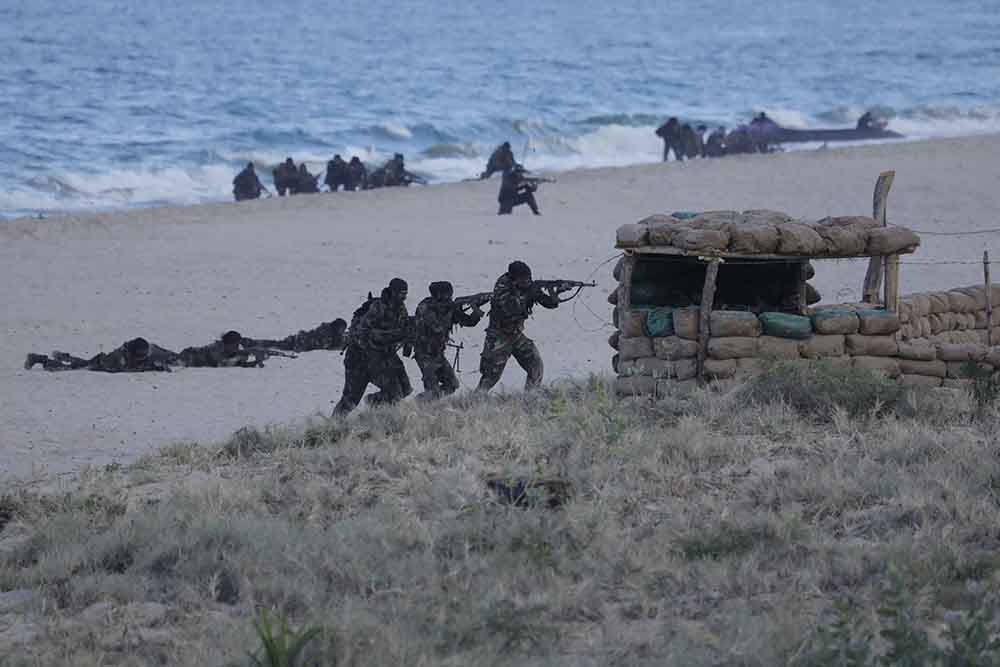
Daring final mock attack in Kuchchaveli smashes enemy hideouts
Critical Engagement’, the apex of the joint Tri-service mega Field Training Exercise (FTX) of the Army, 'Cormorant Strike IX - 2018’ dominated largely by Special Force and Commando Regiment troops and backed by sailors, airmen, mechanized infantrymen and foreign troops got off the ground at Kuchchaveli, Trincomalee on Wednesday (26), before a mammoth gathering of state officials, commanders, tri-servicemen, invitees, media personnel, onlookers and local civilians, Army media unit said.
The final phase of this annual FTX, technically defined as the ‘Critical Engagement’ vividly displayed how a simulated multi-pronged joint amphibious attack on enemy hideouts could be carried out with precision and short notice in a setting, considered hostile, most challenging and exciting.
Along with 2500 troops, infantrymen and mechanized infantrymen, inclusive of 400 Sailors and 200 Airmen, the FTX was made up largely of Army Commandos and Special Forces. To the credit of the Sri Lanka Army, the FTX has attracted a total of 64 foreign service personnel, representing 19 countries, either as participants or observers in the Operation proper.
Foreign participants and observers from China, India, Pakistan, Bangladesh, Turkey, Indonesia, Nigeria, Nepal, Sudan and Zambia contributed productively to the consecutive 9th FTX in close cooperation with fellow service personnel participating in the FTX during the three-week long training.
Today’s simulated lightening attack of ferocious magnitude, headed by Commandos and Special Forces, where they were simultaneously joined by MI 24 and MIG fighter jets and Naval fighter craft at sea struck enemy positions in a convincing manner, identical to that of a real battlefield scenario.
The FTX is aimed at enhancing the military cohesion, combat preparedness, operational readiness and efficiency of Special Operational Forces and is on par with similar Exercises at international levels.
https://casite-790485.cloudaccess.net/news?sa=U&start=4596#sigProId1f9459e3e1
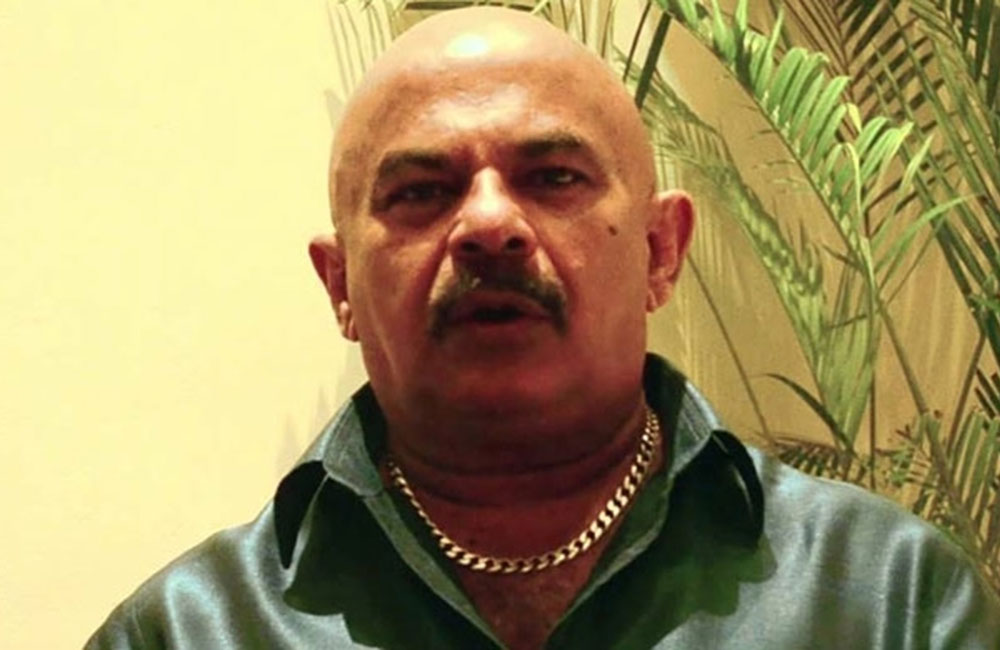
Popular Singer and Actor Ronnie Leach no more
Popular Singer and Actor Ronnie Leach passed away this morning (October 01) due to a sudden heart attack in Perth, Australia at the age of 65.
Chairman of the Sri Lanka Singers Association, Keerthi Pasquel confirmed that the singer had passed away while attending a musical show at Perth.
Having gained fame for singing over 350 songs, Ronnie Leach had contributed greatly to the music industry of Sri Lanka.
He has performed several popular songs on stage with well known Sri Lankan groups like the Gypsies and other bands as well.
He has also appeared in some Sinhalese movies as a comedian and he became popular for acting in films like Leader (2009), Ninja Sri Lanka (1997), Cheerio Darling, Johnson and Gonson , Jolly Boys and Les mystères de Sadjurah (1997).
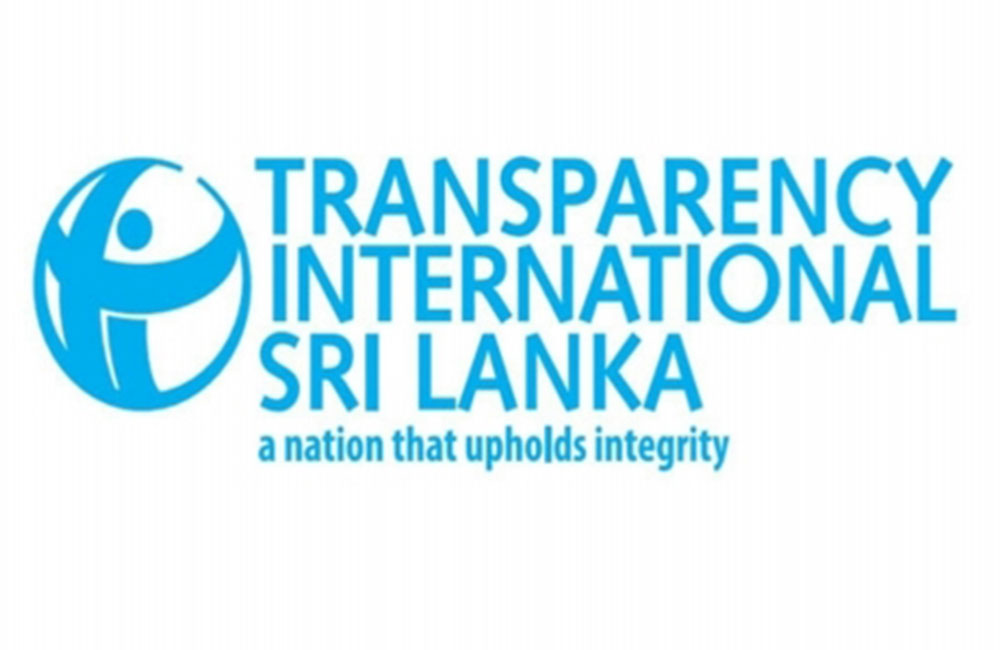
Sri Lanka's RTI on path to transformational impact: Transparency International SL
'Right to Know Day' which falls today, (28th Sept), has taken on special significance for Sri Lanka since the enactment of the Right to Information (RTI) law which has enabled citizens to ask crucial questions on how we are being governed. To mark Right to Know Day, TISL has launched a complete interactive database of the decisions made by the RTI commission, classified by topic and geographical location, which can now be accessed via www.cd.rtiwatch.lk, our dedicated RTI website.
As we celebrate Right to Know Day, we recognise some of the key milestones of RTI, ranging from citizens receiving redress following RTI requests on corruption within the Vavuniya general hospital to landmark decisions of the RTI Commission on information disclosure by state owned enterprises, such as Sri Lankan Airlines. Looking ahead to October, TISL will be concluding its final submissions before the RTI Commission on accessing the assets declarations of the President and the Prime Minister.
While great strides have been made in using RTI at all levels of public service, be it in the fight against corruption or as a tool to improve public service delivery, citizens continue to encounter resistance and obstacles when exercising this fundamental right. Since the RTI Act came into effect on February 3, 2017, TISL has facilitated the filing of 1,457 RTI applications for the public via the 6 RTI hubs in Ampara, Matara, Vavuniya, Jaffna, Trincomalee and Colombo. Success has varied and at times solutions are provided to citizens, without the information itself being provided. Whilst this has short term benefits, it is essential that information flows are established through RTI to ensure its long-term sustainability.
In addition to training public officials, focus must now be on strict monitoring of implementation as well. In his statement marking International Right to Know Day TISL Executive Director Asoka Obeyesekere stated that “The impact that RTI has had on governance in Sri Lanka cannot be understated. At TISL we encounter the stories of members of the public who have been able to use RTI to great effect. From accessing public services like waste collection to securing land rights and exposing bribery and corruption, RTI has been a success, with the next phase requiring the timely proactive disclosure of information. It is only with sustained commitment that RTI will achieve its transformational potential”.
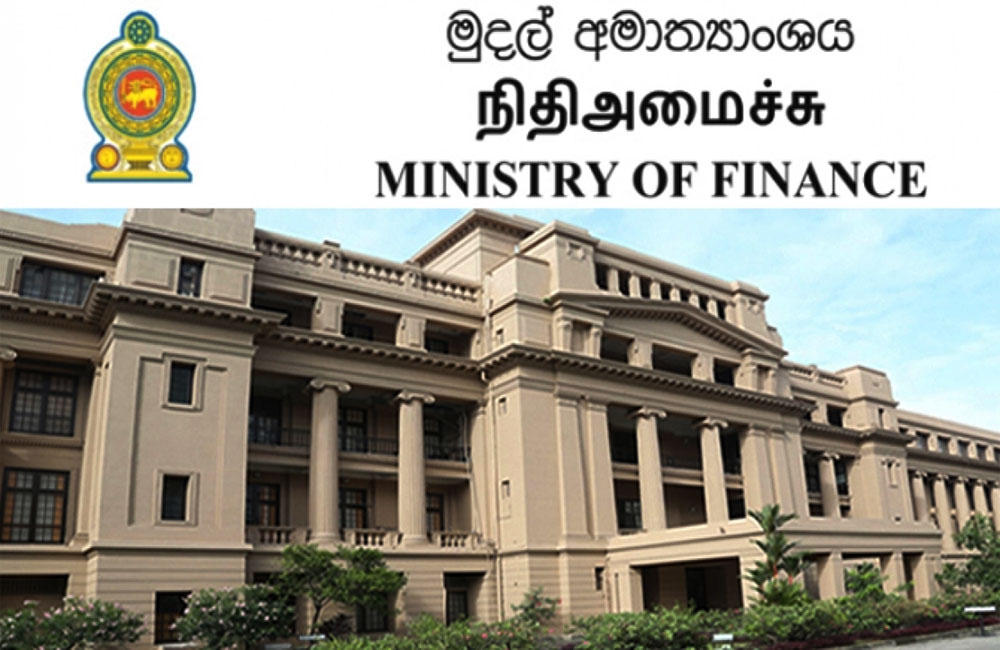
Government restricts non essential imports defending the rupee
The Finance ministry announced several immediate measures to ease the pressure on the rupee with immediate effect. This move is aimed at curtailing the importation of vehicles, non essential items and electrical appliances preventing foreign e exchange out flows ,
Accordingly issuing of Vehicle permits to Members of Parliament will be suspended for a period of one year. Importation of vehicles for Government Ministries, Departments, Statutory Boards, State owned Enterprises will be suspended until further notice.
Importation of vehicle using the concessionary permits issued to entitle State Sector employees will be suspended for six months. No Letters of Credits will be permitted to be opened based on these permits during this period.
Loan to Value Ratio (LTV) for Hybrid vehicles will be revised from 70:30 to 50:50 basis. Importers of all vehicles other than buses, lorries and ambulances will have to keep a 200 percent cash margin at the time of opening of the LCs
Further, the requirement of 100 percent cash margin has been imposed for the import of Refrigerators, Air Conditioners, Televisions, Perfumes, Telephones including Mobile phones, washing machines, footwear and tyres
However, though these measures will be effective temporarily from today the government will continuously monitor the exchange rate fluctuations and will take appropriate action accordingly
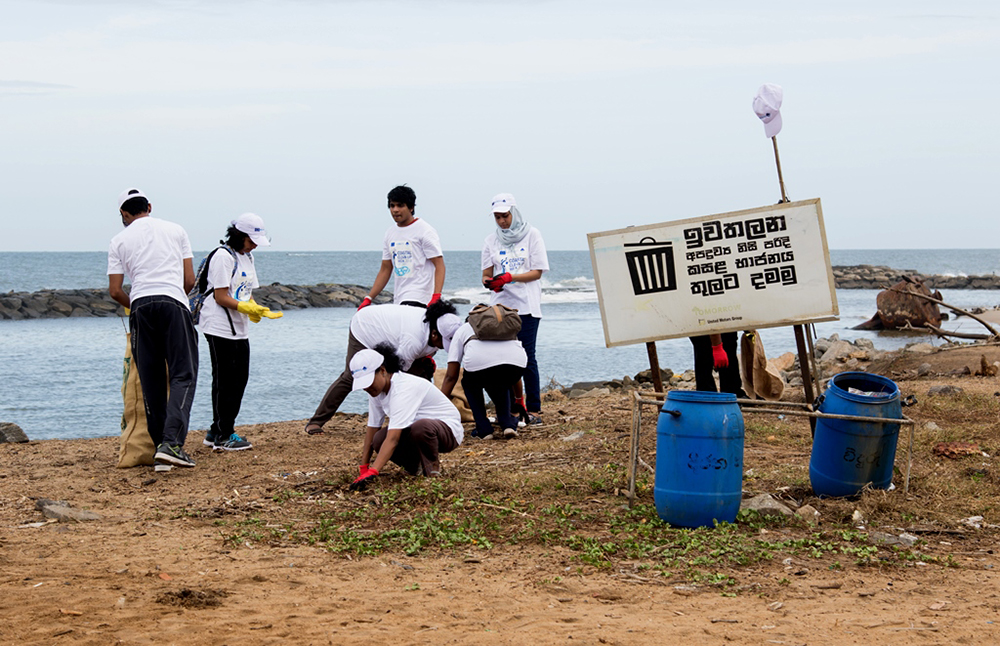
A call to action to tackle ocean plastic waste: EU, UNOPS, and MEPA beach clean-up for coastal clean-up week 2018
Working together to take action against marine litter, the Delegation of the European Union (EU), United Nations Office for Project Services (UNOPS), and the Marine Environment Protection Authority (MEPA) of the Ministry of Mahaweli Development and Environment cleaned up the Prithipura public beach in Wattala as part of Sri Lanka's coastal clean-up week 2018.
International Coastal Clean-up Day on 15 September kick started a week-long series of beach clean-ups in Sri Lanka. Around 1.59 million tonnes of waste is released into the ocean around the island annually. Every year millions of tonnes of plastic end up in the ocean, ten per cent of which is marine litter made up of derelict fishing gear. It takes hundreds of years for the plastic to degrade and disintegrate into tiny pieces known as microplastics which are unwelcome and dangerous guests in our food chain.
EU Ambassador Tung-Laï Margue helping to clean up Preethipura beach
"The EU's Plastics Strategy is translating political commitment into bold action at home and abroad", said EU Ambassador H.E. Tung-Laï Margue. "The EU is playing a leading role in ocean governance, and is helping to build momentum for a global call for cleaner and safer seas. EU Delegations around the world have organised beach clean-up campaigns to mark International Coastal Clean-up Day, and we are happy to be doing the same here in Sri Lanka. Immediate and continuous action is vital to tackle ocean plastic waste to ensure sustainable oceans and fisheries, and to support resilient coasts and coastal communities".
Hanna Singer, the UN Resident Co-ordinator, noted that "SDG 14 calls for action that will ‘by 2025, prevent and significantly reduce marine pollution of all kinds, in particular, from land-based activities, including marine debris and nutrient pollution’. The UN in Sri Lanka, through its many agencies has continuously engaged in activities focused on ocean and coastal preservation. Our commitment, together with the government, to protect marine ecosystems and biodiversity has been further strengthened through the renewed focus on environmental management in the UN Sustainable Development Framework 2018 – 2022".
MEPA General Manager Dr. Terney Pradeep Kumara said, "The waste which accumulates in seas around Sri Lanka is not merely from Sri Lanka; it comes from neighbouring countries. Therefore, a sustainable solution is needed to control the release of waste to the sea. Tackling marine debris requires educating people–they must be briefed about matters such as encouraging the reduction of using single use plastics and waste segregation, recycling and beach clean ups. In line with this, MEPA has organised almost 100 beach clean-ups around Sri Lanka during coastal clean-up week, and I thank the EU and UNOPS for being part of this programme".

Sri Lanka President orders ban on oil palm cultivation
Sri Lanka government has taken measures to prohibit oil palm cultivation on a directive issued by President Maithripala Sirisena considering its threat environmental sustainability in the island, Presidential secretariat official said.
This decision has been taken in consultation with the National Economic Commission, he added.
Palm oil has gained notoriety for its links to tropical deforestation, biodiversity loss, greenhouse gas emissions, disturbance of carbon-rich peatland, exploitation of workers and land grabs, environmentalists said.
There is growing opposition to palm oil cultivation in some districts with non-governmental organizations and political parties getting involved in protests, claiming that the environment was being harmed by oil palm.
Plantation Minister Naveen Dissanayake said some protestors were being driven by political objectives but there were also others who were genuinely concerned others emotional without relying on scientific evidence.
"So much of the criticism is unscientific and emotional," Minister Dissanayake said. "Sinhalese and Tamil people tend to emotional." Officials said even earth slips are being blamed on oil palm by critics. However oil palm had been cultivated since the 1960s in Sri Lanka but the opposition gained momentum recently, officials said.
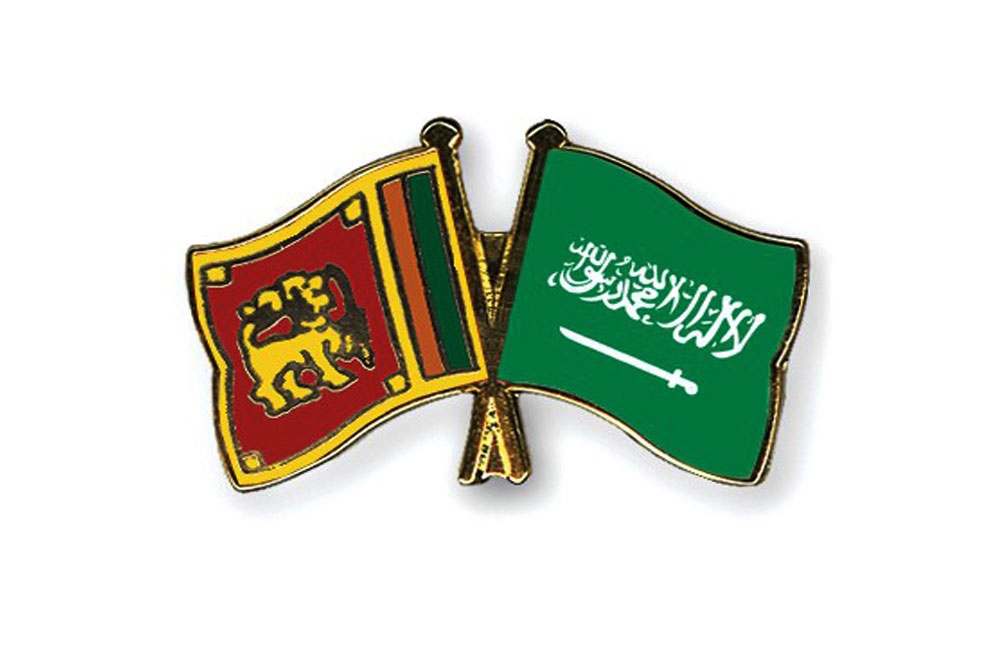
Saudi Arabia pledges USD 300 million in aid to Sri Lanka
Saudi Arabia has pledged USD 300 million in aid to Sri Lanka for water supply projects and agricultural, education and health sector development, according to Sri Lankan media outlets.
Saudi ambassador Abdul Nazar Al Hardi announced the assistance project to reporters during a visit to a road development project in Padiyatalawa in eastern Sri Lanka on Sunday.
“We are happy to assist Sri Lanka and look forward to strengthening bilateral ties with Sri Lanka,” he said.
Sri Lanka has been actively seeking to improve ties with Saudi Arabia for the last several years, particularly in the tourism sector. In 2017, more than 50,000 Saudi nationals visited Sri Lanka.
Additionally, the Saudi Fund for Development has been operating in Sri Lanka for more than 30 years, and recently funded a 200-bed hospital for epileptics in the capital of Colombo.
"The total funds guaranteed by the Saudi Fund for Development to Sri Lanka reaches nearly USD 300 million in various sectors -health, education, water supply, irrigation, agriculture and road development. The Kingdom also accommodates nearly 200,000 skilled Sri Lankan workers”, the ambassador added.
Sri Lankan airlines also operates 18 return flights to Riyadh, Jeddah and Dammam to cater to the Sri Lankan expatriate population in the kingdom, the largest Sri Lankan community in the Middle East.
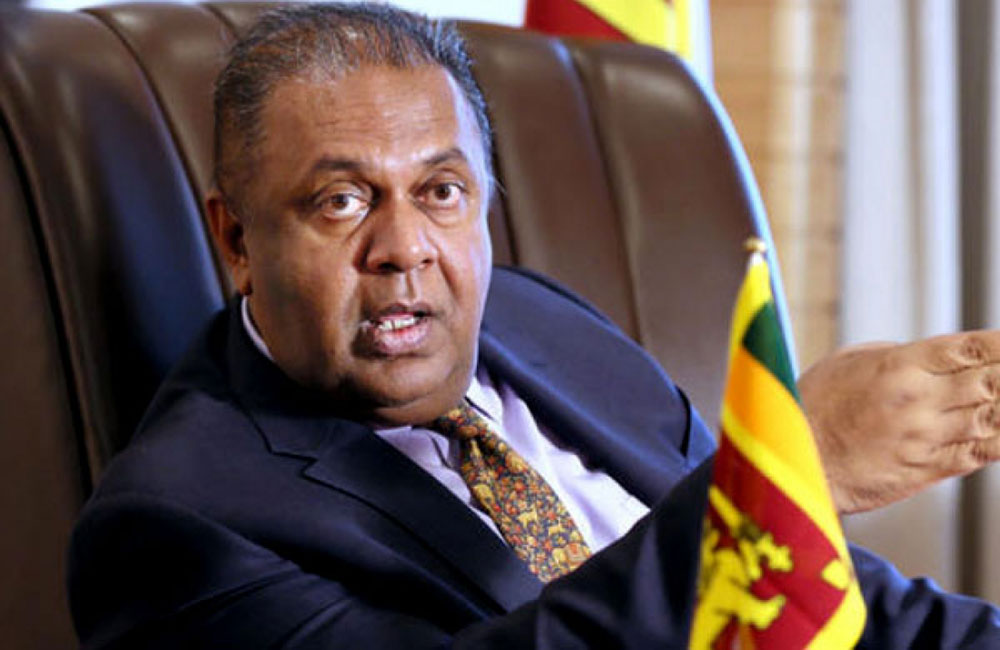
RIT empowering media freedom : Minister Mangala Samaraweera
Sri Lanka was ranked 165th in the 2014 World Press Freedom Index and has since moved to the 131st place in 2018, Finance and Mass Media Minister Mangala Samaraweera said.
“There is clearly a long way to go, but we are moving in the right direction”, he said.
Addressing the 20th Anniversary of the Colombo Declaration on Media Freedom and Social Responsibility yesterday at the Cinnamon Grand Colombo, Minister said that the freedom of media directly contributes to the economic, political and social well-being of the country.
“We do expect balanced, unbiased and fact based reporting.It would strengthen our democracy without harming our core values”, he said.
He further noted that by keeping the government and other institutions accountable for their actions, media is a powerful tool used to promote democracy and the rule of law and added that enabling a free, independent and responsible media should be the priority of any government’s agenda.
Since the Unity Government was established, much has been done in Sri Lanka to ensure that journalists can fulfill their role without interference or intimidation by the government, he said.
Minister Samaraweera said that Right to Information Act was a significant reform in empowering an independent media and added that as a result fact based journalism will be more prevalent.
He said that media is moving towards a more sensational perspective rather than giving prominence to facts and pointed out how media sensationalism regarding Free Trade Agreement between Singapore and Sri Lanka without revealing the real facts.
Source : Daily News
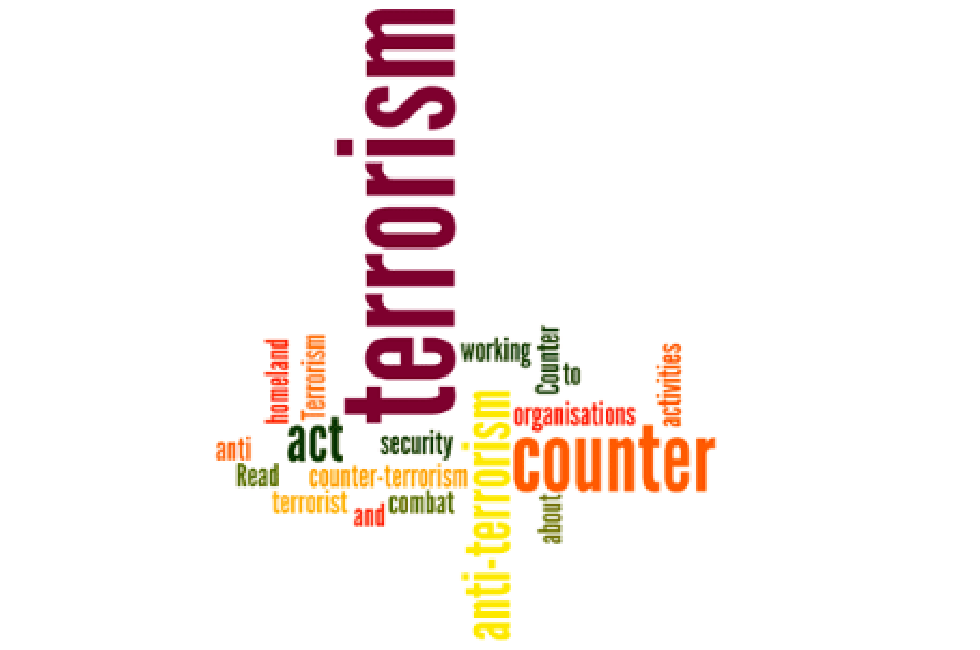
New Counter Terrorism Bill gazetted
The Government has proposed life imprisonment for the offence of terrorism if such act caused any other person’s death under the new Counter Terrorism Bill gazetted last week.This vital piece of legislation, which received conditional Cabinet approval early this month, will do away with the widely-objected Prevention of Terrorism (Temporary Provisions) Act of 1979.
The 88-page Bill is to make provisions for the protection of Sri Lanka and its people from acts of terrorism and other associated offences. It provides for the identification, apprehension, arrest, custody, detention, investigation, prosecution and punishment of any person who has committed an act of terrorism or any other associated offence.
It provides for the detection of terrorist acts and other offences associated with terrorism. The Bill has provisions to prevent terrorism and other associated offences committed within or outside Sri Lanka.It also prevents using Sri Lanka’s territory and its people for the preparation for terrorism outside Sri Lanka.
The preamble to the Bill states that the legislation is based on international norms and standards and domestic needs.The provisions of the proposed legislation apply to any Sri Lankan citizen within or outside the country’s territory. It covers the territorial waters and the airspace of Sri Lanka, and the office premises of diplomatic missions in Sri Lanka including the residences of those diplomats.
The Bill says that the offences committed with the intention of “intimidating a population, wrongfully or unlawfully compelling the Sri Lankan government, any other government, or an international organization, to do or to abstain from doing any act, preventing any such government from functioning or causing harm to the territorial integrity or sovereignty of Sri Lanka or any other sovereign country,” are considered as acts of terrorism.
Identifying the need to deal with emerging cyber-terrorism risks, the Government has defined that “causing obstruction or damage to, or interference with, any electronic, automated or computerised system or network or cyber environment of domains assigned to Sri Lanka including websites,” as an act of terrorism if committed with the above mentioned intentions.
The Bill proposes life imprisonment for a person guilty of committing a terrorist act which caused the death of another person upon conviction by the High Court. If there had been no deaths, but still the act was aimed at killing another person, such person can be punished with “imprisonment for a period which may extend to life imprisonment upon conviction by the High Court”.
In addition to that, the court may order that all or any property of such person, be forfeited to the Republic. As per the Bill, any person who “attempts, abets or conspires to commit”, an offence of terrorism is liable to imprisonment of a term not exceeding 15 years and to a fine not exceeding Rs 1 million.The bill also states that a person could not be held in remand for more than 6 months without instituting criminal proceedings. However, the period of remand may be extended to a maximum of another six months on an order of a High Court Judge, on an application made by the Attorney General. The Magistrate can give conditional bail to the suspect if criminal proceedings are not instituted within 12 months.
According to the Bill, detention beyond two weeks is possible only with the approval of a Magistrate and no suspect shall be detained for more than two months under Detention Orders. The Police should notify the Human Rights Commission of Sri Lanka of the detention of suspects within 72 hours.The Magistrate, before whom a suspect has been produced and detained, and Human Rights Commission, can lisit and interview the suspect and look into his well-being without giving any advance notice.
The draft law proposes to have day-to-day trials for cases filed under it.Under the new law, the President can declare “Curfew” either to the entirety or part of Sri Lanka including its territorial waters and air space for the protection of national or public security from terrorism and other associated offences. The maximum period of any Curfew Order shall not exceed 24 hours at a time. A person, who willfully violates a Curfew Order, is liable to a fine not exceeding Rs 300,000.

Govt. mulling the possibility of resuming ferry service from Rameswaram to Thalaimannar
Tourism Development and Christian Affairs Minister John Amaratunga said that the government is strongly considering the possibility of resuming the ferry service between Rameshwaram and Thalaimannar. He was addressing the World Tourism Day official celebration at the University of Jaffna recently.
The Minister noted that the government was keen to proceed with the plan as it would strongly benefit the Northern Province, including its tourism sector. The Minister said that the Palaly Airport which operated as a military airport for a long time had been opened up for civilian transportation.
The domestic airport, he said, would drastically increase the number of tourists visiting Jaffna as they would be able to fly to Palaly from the Bandaranaike International Airport. The Tourism Minister said the Sri Lanka Tourism Development Authority (SLTDA) would soon open up a sub-office in Jaffna to expedite the industry’s growth in the province.
He requested the Tamil diaspora to return to the country and invest in the tourism industry in the North.“Whenever I meet members of the Tamil diaspora when I go overseas, I request them to come back. That way, they will help themselves and their community. Tourism offers a great opportunity to the Northern Province,” he said.
Northern Province Chief Minister C.V. Wigneswaran urged the tourism authorities to tap into the full tourism potential of the North by resolving ‘bottlenecks’ in fund allocation, industry expertise, and planning. The Chief Minister said his province had many places that could be developed into provincial tourism hubs through the right strategies and fund allocation.
“We need more tourism experts in our province to realise its full potential,” the Chief Minister said, adding that he had presented several comprehensive plans to the government on tourism development in the Northern Province.
Wigneswaran, highlighting the importance of the tourism industry for better revenue generation, said the scenic islands in Jaffna and other beaches in the province could be developed into major tourist attractions, similar to those in the Eastern Province.
He said that although a strip between Palaithivu and Pallikuda had been earmarked for a ferry service that would benefit the tourism industry, the process had come to a halt due to Navy occupation in the area.
The Chief Minister attributed the industry’s slow growth to external factors such as anomalies in fund allocation and the absence of inclusive planning.“We have no reservations about working with the government or tourism bodies of the central government as long as our regional rights are not violated,” Wigneswaran said.
Sri Lanka Tourism Development Authority Chairman Kavan Ratnataka promised to fast track measures to develop tourism in the province in a holistic and sustainable manner.“Tourism, I am sure, will be the number one or number two sector in Jaffna. But the industry in the province should grow in a manner that preserves the authenticity of the tourism experience it offers. You, in Jaffna, should remain who you are. At the same time, the growth of the industry should be sustainable,” he said.

Mango cultivation zones to be set up under the ‘We plant - We eat' rapid agriculture development project
The Agriculture Ministry plans to set up mango cultivation zones in Dambulla and Jaffna. On the advice of Agriculture Minister Mahinda Amaraweera, initiatives have been taken to implement this project under the rapid agriculture development project ‘We plant - We eat’. The aim of this project is to plant mango trees in the selected districts in view of favourable weather and environment conditions.
Mango plantation zones will be the first project under the rapid agriculture development project ‘We plant - We eat’. The project has been funded by the World Bank-assisted Agricultural Modernisation Project and 100,000 Tom EJC mango plants will be planted in these zones.
The Tom EJC species of mangoes grow well in both dry and wet zones and there is a huge demand for these mangoes nationally and internationally. The Ministry has taken this initiative targetting the export market. As a first step, 12,500 plants will be planted in Dambulla.
Page 384 of 510
